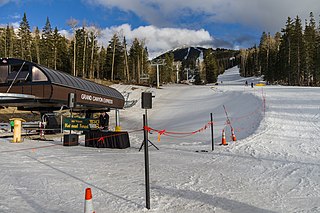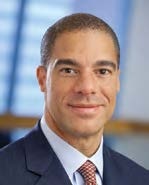
The Religious Freedom Restoration Act of 1993, Pub. L. No. 103-141, 107 Stat. 1488, codified at 42 U.S.C. § 2000bb through 42 U.S.C. § 2000bb-4, is a 1993 United States federal law that "ensures that interests in religious freedom are protected." The bill was introduced by Congressman Chuck Schumer (D–NY) on March 11, 1993. A companion bill was introduced in the Senate by Ted Kennedy (D-MA) the same day. A unanimous U.S. House and a nearly unanimous U.S. Senate—three senators voted against passage—passed the bill, and President Bill Clinton signed it into law.

The Religious Land Use and Institutionalized Persons Act (RLUIPA), Pub. L.Tooltip Public Law 106–274 (text)(PDF), codified as 42 U.S.C. § 2000cc et seq., is a United States federal law that prohibits the imposition of burdens on the ability of prisoners to worship as they please and gives churches and other religious institutions a way to avoid zoning law restrictions on their property use. It also defines the term "religious exercise" to include "any exercise of religion, whether or not compelled by, or central to, a system of religious belief." RLUIPA was enacted by the United States Congress in 2000 to correct the problems of the Religious Freedom Restoration Act (RFRA) of 1993. The act was passed in both the House of Representatives and the Senate by unanimous consent in voice votes, meaning that no objection was raised to its passage, so no written vote was taken. The S. 2869 legislation was enacted into law by the 42nd President of the United States Bill Clinton on September 22, 2000.

Mary Margaret McKeown is a Senior United States circuit judge of the United States Court of Appeals for the Ninth Circuit based in San Diego. McKeown has served on the Ninth Circuit since her confirmation in 1998.
Gonzales v. O Centro Espírita Beneficente União do Vegetal, 546 U.S. 418 (2006), was a United States Supreme Court case in which the Court held that, under the Religious Freedom Restoration Act of 1993, the government had failed to show a compelling interest in prosecuting religious adherents for drinking a sacramental tea containing a Schedule I controlled substance. After the federal government seized its sacramental tea, the União do Vegetal (UDV), the New Mexican branch of a Brazilian church that imbibes ayahuasca in its services, sued, claiming the seizure was illegal, and sought to ensure future importation of the tea for religious use. The church won a preliminary injunction from the United States District Court for the District of New Mexico, which was affirmed on appeal.

Timothy Michael Tymkovich is an American lawyer who has served as a United States circuit judge of the United States Court of Appeals for the Tenth Circuit since 2003; serving as chief judge from 2015 to 2022. In November 2023, he was designated by Chief Justice John Roberts to serve as a judge of the United States Foreign Intelligence Surveillance Court of Review.

Milan Dale Smith, Jr. is an American attorney and jurist serving as a United States circuit judge of the United States Court of Appeals for the Ninth Circuit. Smith's brother, Gordon H. Smith, was a Republican U.S. Senator from 1997 to 2009. Milan Smith is neither a Republican nor a Democrat, and he considers himself to be a political independent.

Stephen Roy Reinhardt was a United States circuit judge of the United States Court of Appeals for the Ninth Circuit, with chambers in Los Angeles, California. He was the last federal appeals court judge in active service to have been appointed to his position by President Jimmy Carter.

Arizona Snowbowl is an alpine ski resort in the southwest United States, located on the San Francisco Peaks of northern Arizona, fifteen miles (24 km) north of Flagstaff. The Snowbowl ski area covers approximately one percent of the San Francisco Peaks, and its slopes face west and northwest.

Diarmuid Fionntain O'Scannlain is a senior United States circuit judge of the United States Court of Appeals for the Ninth Circuit. His chambers are located in Portland, Oregon.

Kahle v. Gonzales, 487 F.3d 697 is a First Amendment case that challenges the change in the US copyright law from an opt-in system to an opt-out system.

United States v. Weitzenhoff, 35 F.3d 1275 is a legal opinion from the Ninth Circuit Court of Appeals that addresses the confusing mens rea requirement of a federal environmental law that imposed criminal sanctions on certain polluters. The main significance of the court's opinion was that it interpreted the word "knowingly" in the statute to mean a general awareness of the wrongfulness of one's actions or the likelihood of illegality, rather than an actual knowledge of the statute being violated. Circuit Court Judge Betty Binns Fletcher authored the majority's legal opinion in this case.

John Thomas Noonan Jr. was a United States circuit judge of the United States Court of Appeals for the Ninth Circuit.

Nordyke v. King was a case in the United States Court of Appeals for the Ninth Circuit in which a ban of firearms on all public property and whether the Second Amendment should be applied to the state and local governments is to be decided. After several hearings at different levels of the federal court system, Alameda County, California promised that gun shows could be held on county property, essentially repudiating its ordinance.

Robert L. "Bob" Corn-Revere is an American First Amendment lawyer. Corn-Revere is the Chief Counsel at the Foundation for Individual Rights and Expression and was formerly a partner at Davis Wright Tremaine LLP in Washington, D.C. He is regularly listed as a leading First Amendment and media law practitioner by The Best Lawyers in America (Woodward/White), SuperLawyers Washington, D.C., and by Chambers USA . Best Lawyers in America named him as Washington, D.C.’s 2017 “Lawyer of the Year” in the areas of First Amendment Law and Litigation – First Amendment. He was again named as Best Lawyers’ “Lawyer of the Year” for First Amendment Law for 2019 and 2021, and in Media Law for 2022.

Fair Housing Council of San Fernando Valley v. Roommates.com, LLC, 521 F.3d 1157, is a case in which the United States Court of Appeals for the Ninth Circuit, sitting en banc, held that immunity under Section 230 of the Communications Decency Act (CDA) did not apply to an interactive online operator whose questionnaire violated the Fair Housing Act. However, the court found that Roommates.com was immune under Section 230 of the CDA for the “additional comments” portion of the website. This case was the first to place a limit on the broad immunity that Section 230(c) gives to service providers that has been established under Zeran v. AOL (1997).

Paul Jeffrey Watford is an American lawyer who served as a United States circuit judge of the United States Court of Appeals for the Ninth Circuit from 2012 to 2023. In 2016, The New York Times identified Watford as a potential Supreme Court nominee to replace Justice Antonin Scalia. Watford resigned his judgeship in 2023 and became a partner at the law firm Wilson Sonsini Goodrich & Rosati.

United States v. Nosal, 676 F.3d 854 was a United States Court of Appeals for the Ninth Circuit decision dealing with the scope of criminal prosecutions of former employees under the Computer Fraud and Abuse Act (CFAA). The Ninth Circuit's first ruling established that employees have not "exceeded authorization" for the purposes of the CFAA if they access a computer in a manner that violates the company's computer use policies—if they are authorized to access the computer and do not circumvent any protection mechanisms.

Planned Parenthood of Columbia/Willamette v. American Coalition of Life Activists, 290 F.3d 1058 (2002), was a freedom of speech case of the United States Court of Appeals for the Ninth Circuit over statements by anti-abortion activists who publicized personal information about specific abortion doctors, and indirectly suggested the possibility of violence against those individuals. The Ninth Circuit ultimately affirmed the decision of the United States District Court for the District of Oregon that the speech was a true threat that is not protected by the First Amendment to the United States Constitution.











